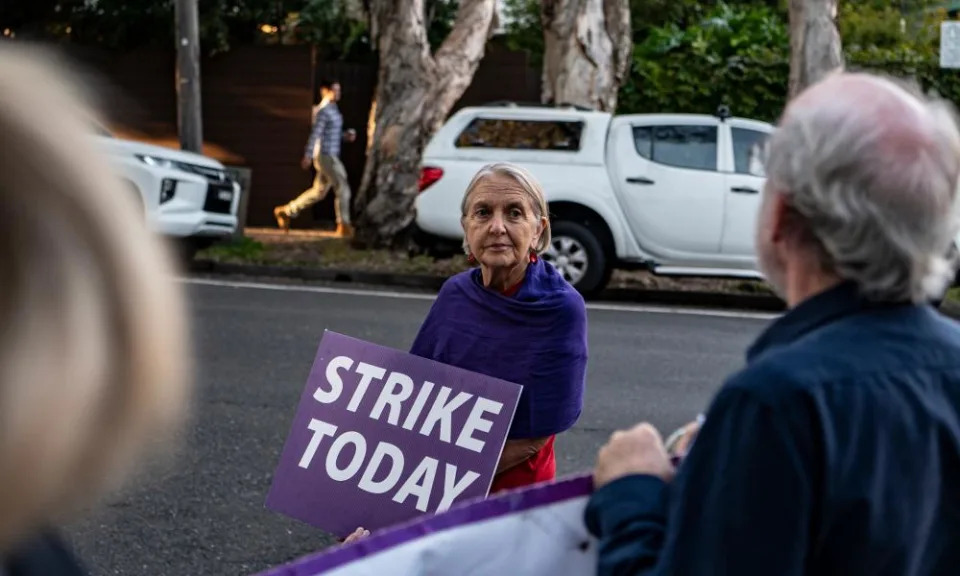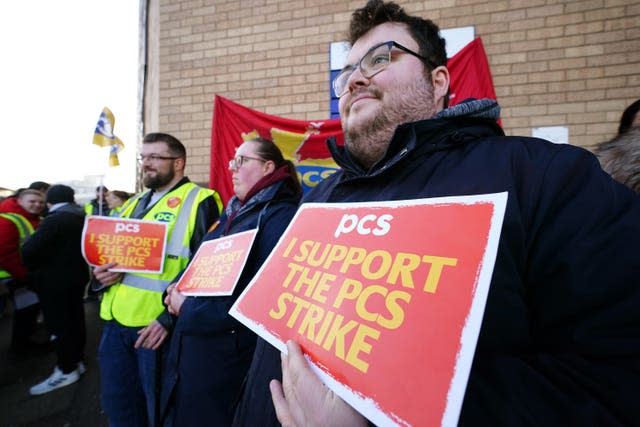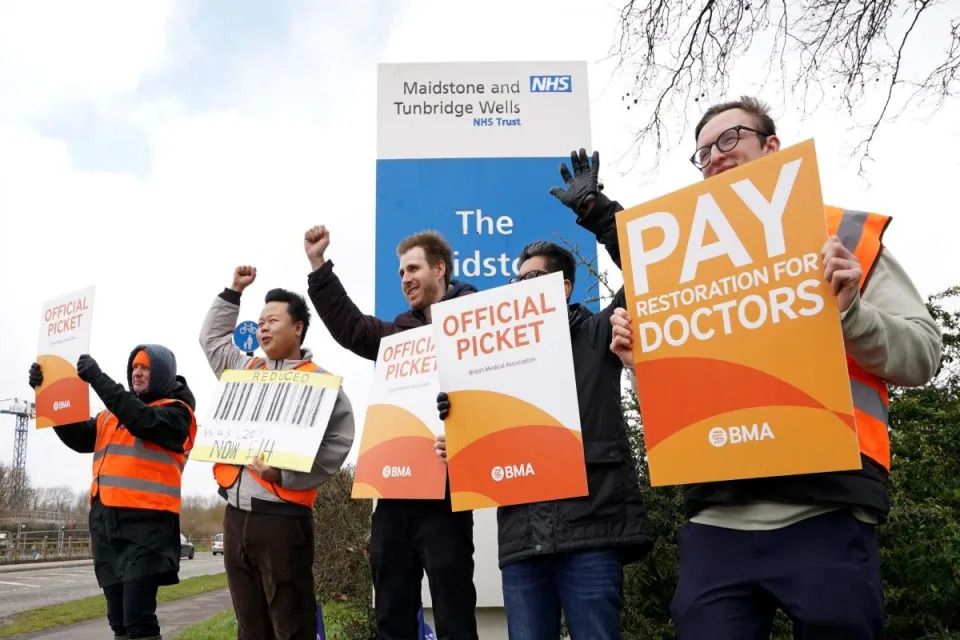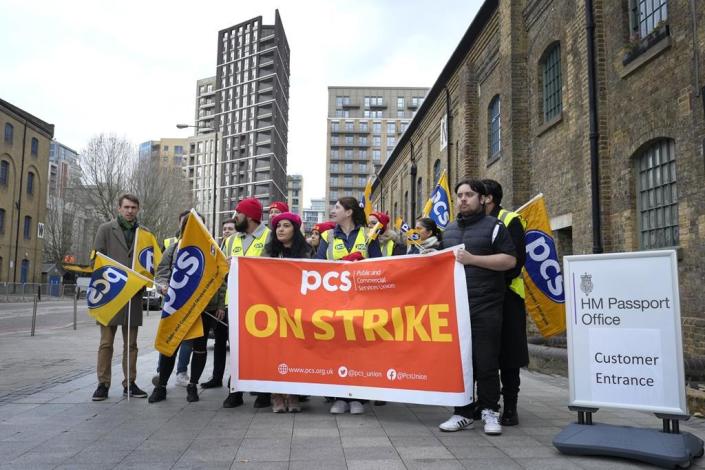Herald Scotland Online
Sun, 2 April 2023

Energy firm SSEN has put forward plans for a network of pylons to run for about 100 miles through the Highlands. (Image: PA)
Campaigners including a clan chief have vowed to fight power giants seeking to construct a “critical” new line of pylons through the Scottish Highlands.
Energy firm SSEN has put forward plans for a network of pylons to run for about 100 miles between Spittal, in Caithness, in the far north of Scotland, to Beauly, near Inverness.
The plans are seen as critical in moving renewable energy generated in the Highlands to more populated areas of central Scotland and England.
But a new campaign group has been formed in a bid to urge the power firm to reconsider parts of the route – with campaigners vowing to seek a public inquiry if the line as currently planned is “bulldozed through regardless of local feeling”.
Members of the Strathpeffer and Contin Better Cable Route Group want a third party to be brought in to work with both SSEN and local residents to plot a less disruptive route for the line.
As it stands, they fear pylons which are “Glasgow tower block size” could be “marching along the skyline, carving a swathe through the wood”.
READ MORE: 'Super pylon' plan emerges to run through Scots countryside
Group spokesman Dan Bailey said: “We’re talking as big as they get in terms of overhead pylons, through a landscape that has no built environment over a couple of storeys.”

HeraldScotland: Undated handout photo of Lower Strathconon.
Mr Bailey, from the Highland village of Strathpeffer, said the plans were for pylons between 50m and 60 in height to be placed every few hundred metres along the route – adding that the only consultation with residents had been about where in a 1km-wide strip of land these should be sited.
He said: “The line they have chosen as their preferred route, it is potentially the most damaging line they could have chosen on all sorts of measures, environmental, habitat loss, rare species, the fact that it carves through a really valuable local resource of recreational woodland that is used by walkers and mountain bikers in their thousands.
“It just damages the landscape setting of Strathpeffer, which is a historic Victorian spa village and a heritage centre. It is like nothing we will ever have seen.”

HeraldScotland: Undated handout photo of Ben Wyvis.
The Strathpeffer conservation area, the ancient Knockfarrel hill fort, Castle Leod and its woodlands, and the Loch Kinellan crannog, which is a scheduled monument, could all be impacted, campaigners say.
READ MORE: Highland road 'unsuitable for learners' named among world's most dangerous
Mr Bailey said residents of both Strathpeffer and the nearby village of Contin “feel like we are going to be collateral damage in the national drive to net zero”.
He claimed SSEN has drawn up its preferred route using desk-based computer modelling “with no on-the-ground assessments for habitat loss, rare species, the impact on landscape quality in a tourist area”.
He continued: “This will absolutely destroy the thing that brings people to the area.
“We are on the edge of the Highlands, we are a scenic, accessible location, we have got campsites, we have got hotels, mountain bike businesses, walking guides, wildlife watching, all of these things feed into the local economy and all of these things are under threat if you plough the line through the wrong part of our area.”
A different route could “substantially mitigate” the impact of the new power line, which SSEN is consulting on until April 14.
But with a lengthy public inquiry having to be held before approval was granted for the similar Beauly to Denny power line, Mr Bailey said: “We will do everything we can to try to trigger a public inquiry if the preferred route is just bulldozed through regardless of local feeling.”
He added: “Scottish ministers have a role to play in this, and the system they preside over is in danger of steamrollering local people.”
John Mackenzie, the Earl of Cromartie and the current chief of Clan Mackenzie, is among those voicing concerns.
He said that locals had been “told at short notice with limited time to assert our democratic rights, that 60m high pylons would be marching across our scenery, cutting across homes and villages as if this area was some industrial wasteland”.
He added: “This is not a wasteland, this is an area of natural beauty where people come to live because it is a good place to bring children up, to work and to appreciate just how wonderful it is.
“In Europe, power lines running across areas of outstanding scenery would be undergrounded, so why not here?”
Helen Smith of Rowan Tree Consulting, which specialises in tourism and heritage projects in the Highlands, said: “The huge threat to heritage in the Strathpeffer area is repeated right along the route from Caithness to Beauly.
“Every moor, strath and glen the pylons will cross has special sites, some dating back 6,000 years, and even if these sites do not end up with huge pylons on top of them, their surrounding landscape will be drastically affected.”
SSEN said that “in order to support the continued growth in onshore and offshore renewables across the north of Scotland, supporting the country’s drive towards net zero, further investment in network infrastructure is needed to connect this renewable power and transport it from source to areas of demand across the country”.
The company’s website added that “following extensive system studies, Spittal to Beauly has been identified as a critical corridor in establishing this required reinforcement”.
A spokesperson for SSEN Transmission said the project was “part of a GB wide programme of works that are required to meet UK and Scottish Government 2030 renewable targets”.
They added: “Whilst delivering this critical national infrastructure by 2030 requires an acceleration of the project development and delivery phases, we remain fully committed to work closely with the local community and wider stakeholders to help inform our design and it is important to note that the project remains in the early stages of development and no specific overhead line route alignments have been identified.
“We are currently seeking feedback on potential route options within approximately 1 kilometre wide areas and preferred substation locations, with this feedback helping inform more detailed overhead line route options and our proposed substation site selections, which we will further consult on later this year.”














